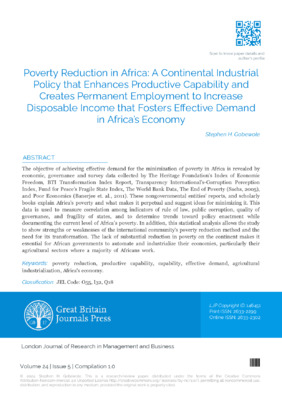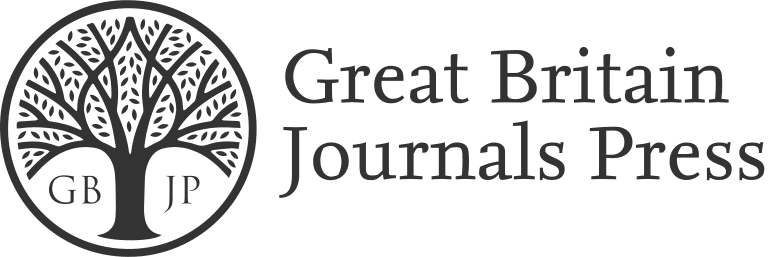Poverty Reduction in Africa: A Continental Industrial Policy that Enhances Productive Capability and Creates Permanent Employment to Increase Disposable Income that Fosters Effective Demand in Africa’s Economy
Abstract
The objective of achieving effective demand for the minimization of poverty in Africa is revealed by economic, governance and survey data collected by The Heritage Foundation�sIndex of Economic Freedom, BTI Transformation Index Report, Transparency International�s-Corruption Perception Index, Fund for Peace�sFragile State Index, The World Bank Data, The End of Poverty (Sachs, 2005), and Poor Economics(Banerjee et. al., 2011). These nongovernmental entities� reports, and scholarly books explainAfrica�s poverty and what makes it perpetual andsuggest ideas for minimizing it. This data is used to measure correlation among indicators of rule of law, public corruption, quality of governance, and fragility of states, and to determine trends toward policy enactment while documenting the current level of Africa�s poverty. In addition, this statistical analysis allows the study to show strengths or weaknesses of the international community�s poverty reduction method and the need for its transformation. The lack of substantial reduction in poverty on the continent makes it essential for African governments to automate and industrialize their economies, particularly their agricultural sectors where a majority of Africans work. The data gathered was also used to create charts, graphs, and tables to assist readers to better understand the economic development policy and agricultural industrialization strategy discussed in the study.
References

Downloads
Published
Issue
Section
License
Copyright (c) 2024 Authors and Global Journals Private Limited

This work is licensed under a Creative Commons Attribution 4.0 International License.





